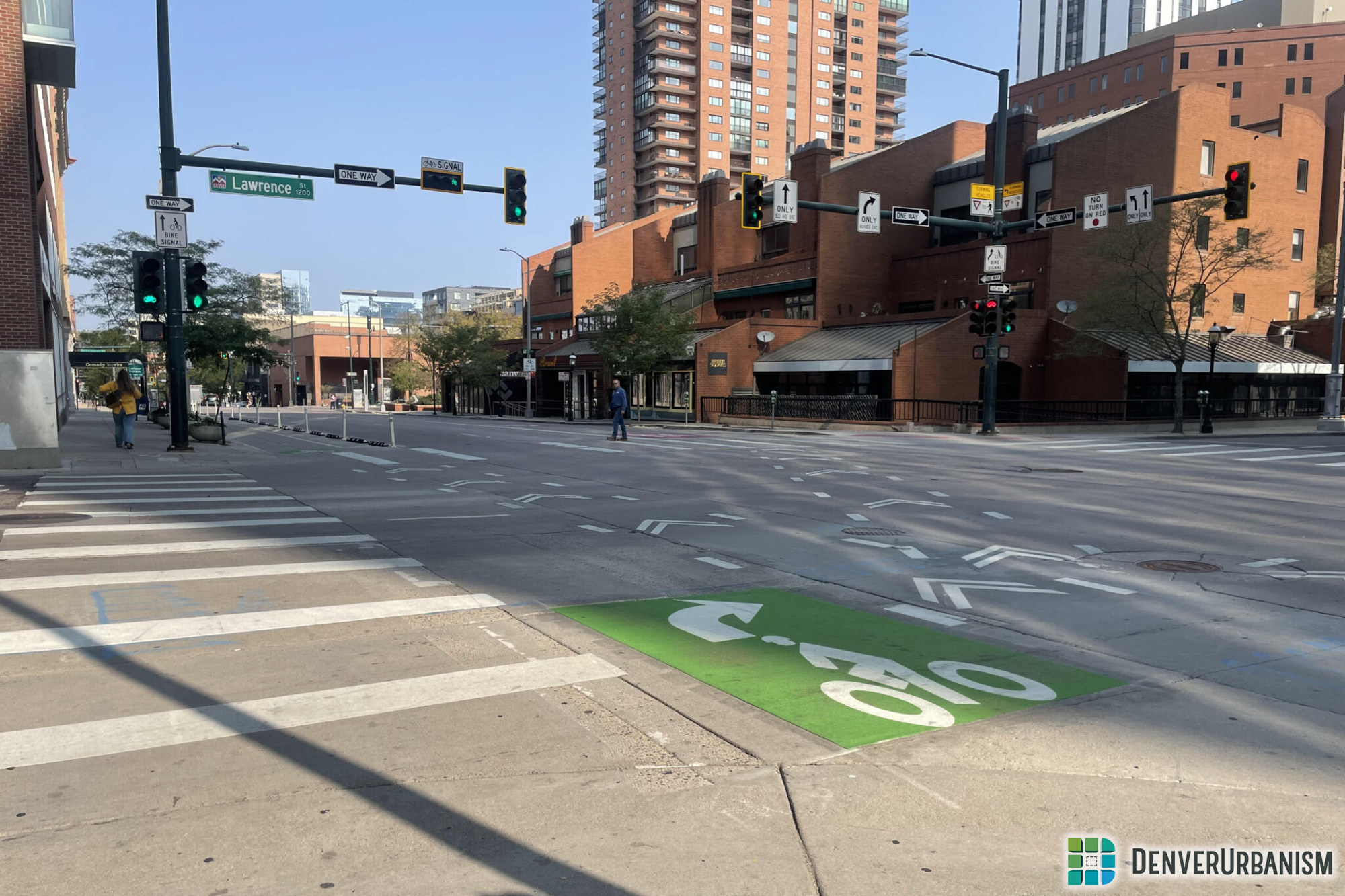The Denver Business Journal featured an article today about a study from EducatedDriver.org that finds that the average Denverite “spends 427 days commuting during his or her life” and that this makes Denver “one of the worst in the U.S. for time stuck in transit.” The article goes on to say that the study evaluated almost 1,000 cities nationwide to calculate the average number of days that a person “can expect to lose commuting during a lifetime.”
Viewing a commute to work or school as time you “lose” and being “stuck” in that commuting experience is a very automobile-centric view of commuting, but it is also an accurate view if your commute does involve you piloting a 90-square foot machine on city streets. The intro paragraph from the EducatedDriver.org’s webpage on their study says it best:
“Commuting is the most stressful part of the day for many people. It’s like a recurring nightmare — day after day, week after week, year after year spent sitting in bumper-to-bumper traffic, stuck behind the wheel instead of spending time with family and friends doing the things you love. It takes a serious toll on the mind and body and on relationships. Not to mention, it can be seriously damaging to your health, leading to headaches, backaches, sleep problems, fatigue, mental health problems, and more.”
What’s interesting is that the Denver Business Journal never actually says commuting “by car” in their article. They just make the assumption that this hellish commuting experience is one that everyone experiences because, duh, everyone drives to work.
Except that’s not the case, of course. According to the latest (2016) data from the US Census Bureau’s American Community Survey, 25% of workers in the City of Denver (16 years of age or older who do not work at home) commute in some way other than “drive alone” such as walking, biking, or taking transit. That leaves 75% who do “drive alone”—yes, a majority—but still, it seems to me that the 25% of the population that doesn’t commute by driving alone is a significant enough percentage to at least warrant some acknowledgment from our local media. They are apparently the “invisible 25%” to the Denver Business Journal.
And for our region’s largest employment center, Downtown Denver, where over 130,000 people work, the number of non-“drive alone” commuters is substantially higher. In their 2017 Commuter Survey, the Downtown Denver Partnership found that only 39% of downtown workers “drive alone” on their commute, with 61% commuting via other means.
Commuting by car in Denver can suck, and some people have few options but to drive alone. But for the hundreds of thousands of people (myself included) in the Denver area who don’t drive to work, our commute is not the traffic-clogged nightmare the mainstream media assumes it to be. A non-“drive alone” commute can actually be enjoyable “found” time, and for me as a walk-to-work commuter, I am certainly not “stuck” anywhere on my commute. Quite the contrary: I have a lot more freedom to spontaneously move around downtown than I would if I were encased in a 4,000-pound metal box.











Absolutely! I commute 2+ hours a day by RTD. I’m reading, enjoying my coffee, learning new languages and calling Cory Gardner to tell him he’s a disgrace to the state.
Same here pal! Duolingo and RTD are the perfect combination.
The idea of using commuting time as “found time” is great. It reminds me of an study that claimed every hour of cycling equates to an hour of additional live expectancy. I’d imagine commuting by car has the opposite effect.
https://www.uu.nl/en/news/dutch-bikers-live-six-months-longer
I’m privileged to have a choice in how I make it to work every day. I have a car, but I’m also a five-minute bike ride to the light rail on both sides of my commute. Each option takes approximately 30 minutes each way most days. Guess which one I prefer? It’s the one where I get to read a book, decompress, be among my fellow citizens. Worrying about whether the car in front of me is going to slam on its brakes or make a desperate maneuver to the exit ramp is just about the worst way I can think of spending my day. Doesn’t matter how wide you make an interstate. It’s going to be full of traffic as long as people aren’t reevaluating how they get from one place to another.
I’m all for this, and I loved riding the light rail when I was a young single professional, and would love for my family to ride it more often (although in both cases doing park n ride). I live in a suburb with light rail, and I work in another suburban City, and my husband works downtown. Unfortunately the majority of trips on public transportation in and around Denver metro still take considerably more time than driving, (I can drive, with typical traffic to work in 25 minutes, a bus ride would be over an hour with multiple transfers (I checked)). My husband’s commute via bus, light rail and walking would be more possible, because downtown is the hub (don’t get me started on the poor E-W network in this City). Until those public transportation times come closer in line with car commuting, people like myself and my husband will continue to commute by car, because unfortunately, leaving work an over an hour early to take a bus home to get the kids to soccer when I can drive it and leave at the regular time is not realistic for mine or most people’s schedules, suburban or not.
On another note, the routes won’t improve unless there is more demand for more frequency on routes or more routes, and unfortunately most people still view taking the bus as an endeavor only for those that can’t afford a car. Until we change the stigma of riding the bus (or the gas prices go through the roof), people will keep driving.